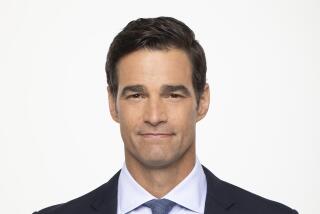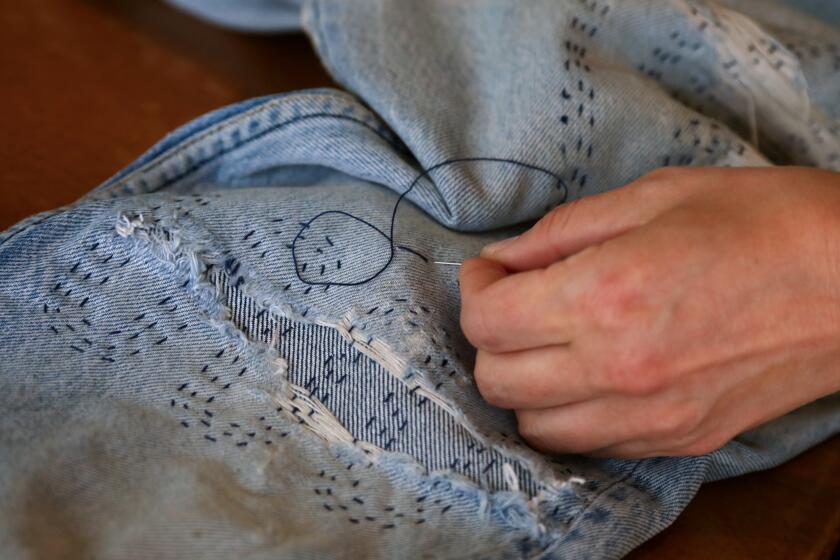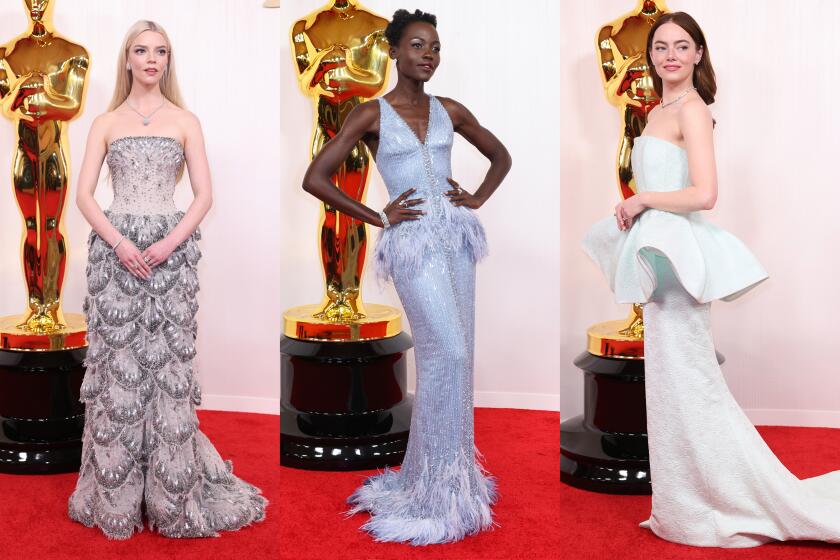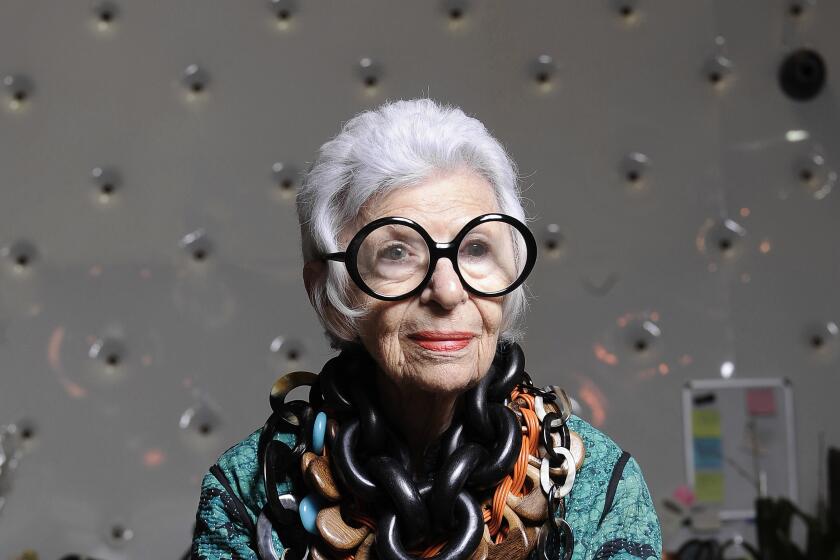THE X FACTOR : Caps with Malcolm X’s initial are turning up everywhere. Are they political statements or just another way to look cool?
Malcolm X caps--along with X-embroidered T-shirts, jackets, baggy shorts and jeans--became popular with teen-agers last fall. But these days, X wear is being worn by everyone from social activists to fashion addicts.
Born Malcolm Little 67 years ago (Tuesday was the anniversary of his birth), he adopted the X in his early 20s while serving time for petty crimes and drug addiction. Little was a surname given to one of his forebears by a slave master. The X symbolized the loss of his original African name and a rejection of the slave name.
Dozens of companies claim ownership of the original X cap. But director Spike Lee, whose film “Malcolm X” is due out in October, is often credited with putting the X factor in the public spotlight.
Lee began wearing his own design--a black cap with silver Roman numeral X--more than two years ago. In February, he signed a licensing agreement with Roman clothing company to manufacture the hats and distribute them nationwide through his New York-based Forty Acres and a Mule apparel firm.
“Spike was trying to make people aware of how great this man was,” says Jeffrey Tweedy, vice president of Forty Acres and a Mule, “not start a fashion trend.”
Nevertheless, the caps have become sort of a fashion status symbol. Teen-agers flaunt the X to impress their friends. Adults wear the X to advertise their social consciousness. Whether either group understands--or even cares--about the meaning behind the message is a question of considerable speculation.
“About 50% of the people wearing this stuff really understand the meaning,” says Thomas Whelan, co-owner of Romp on Melrose Avenue.
But, he adds: “It doesn’t really matter to us if they know or not.”
It matters to people like Tweedy.
“It’s upsetting what a lot of companies have done with the X phenomenon,” he complains. “They’re marketing it with no conscience whatsoever.”
A woman came to Forty Acres and a Mule with an idea for X-brand potato chips. “It’s all for profit rather than to educate kids about who Malcolm X was.”
Josh Wexler, co-owner of Hypnotic Hats, happened on the X design more than a year before Spike Lee’s film got under way. Although Wexler was familiar with Malcolm X, he says the activist was not the inspiration at the time.
“A lot of people say our X looks like two hockey sticks,” says Wexler. “It could also refer to the drug Ecstasy. It’s a very ambiguous design.”
Whatever the X on Wexler’s caps stands for, he’s sold more than $1 million worth.
Since the law prohibits one from registering a trademark on a Roman numeral, a flood of X-cap imitators has surfaced. Some companies have simply copied Lee’s original. Prices can range from $5 at a flea market to $50 for a personalized model. The simplest X cap is about $20.
Whelan says Romp, which carries X caps by Cross Colours, Hypnotic and Butterfly, has been reordering every month to satisfy demand for the caps.
Cross Colours, a black-owned L.A.-based sportswear company, has even incorporated the X into its logo. “Men like Malcolm X made business ownership for blacks a reality in America and the company wanted to acknowledge that contribution,” says the company’s marketing director, Davide Stennant.
Not surprisingly, purveyors of X merchandise differ in their interpretations of Malcolm’s message. Stennant was appalled by a Time magazine photo of an L.A. rioter wearing a T-shirt featuring Malcolm X’s image. “He was holding a gun in his hand and the T-shirt read ‘By any means necessary.’ That really revolted me because the association of the two was almost blasphemous. It was exploitative.”
But Desi Wilkens, owner of Desi Wear, a hip-hop clothing store in South-Central Los Angeles, interprets the same image differently. “It means by all means necessary, and that’s exactly what Malcolm X stood for,” says Wilkens. “It means if you bother me then I’ll bother you. It’s a reaction to an action.”
Malcolm X caps have been sold at Desi Wear for two years. Although much of the X fashion may have come with a message in the beginning, Wilkens says these days most cap makers are “using the X basically for cash flow.”
That seems to be a general consensus among retailers, who say they’re not in business to educate customers about Malcolm X so much as to fill a void in those customers’ closets.
But just how long will the void last?
Wexler says the fashion trend “will be over by Christmas.”
Not true, says Cross Colours’ Davide Stennant. “I see a lot of white kids and Asians wearing the X,” he says. “They’re using the X as a form of artistic freedom that won’t disappear when the movie’s gone.”
More to Read
The biggest entertainment stories
Get our big stories about Hollywood, film, television, music, arts, culture and more right in your inbox as soon as they publish.
You may occasionally receive promotional content from the Los Angeles Times.






